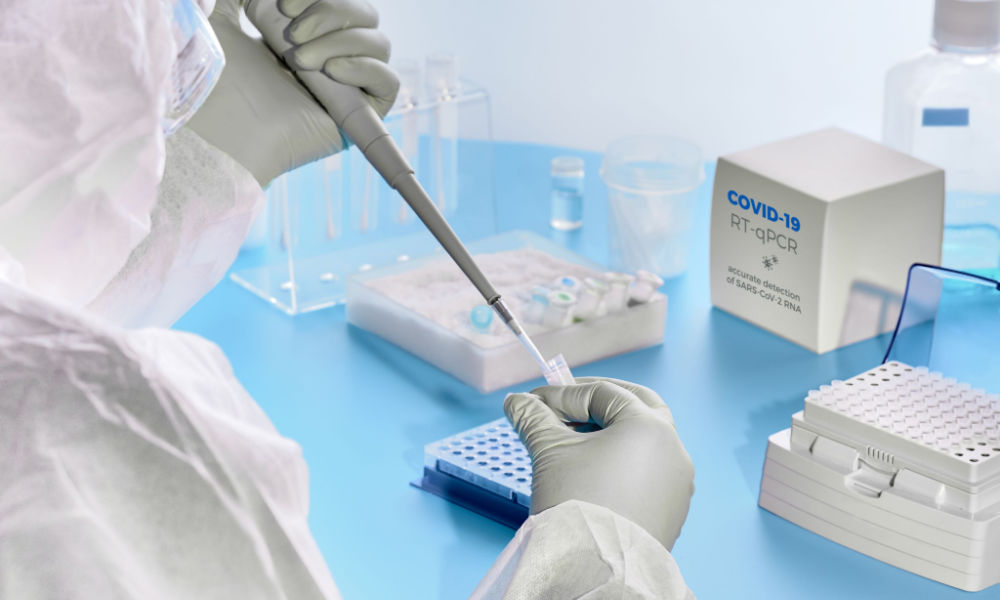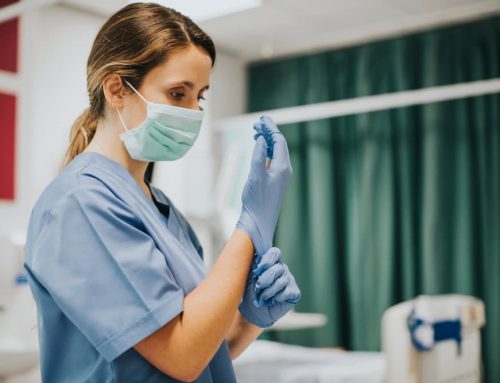Scientists working in molecular biology explore and study life on the most miniature scale possible, examining the structures and functions of cells. Specialists in clinical molecular diagnostics use nucleic acid-based techniques to detect infectious disease agents or mutations associated with cancer.
Professionals in this field must have proficiency in several subjects and sciences before effectively conducting molecular biology research or participating in academic activity. It’s a field of great complexity where not everything involved is wholly understood.
Clinical molecular diagnosticians apply their chemistry, physiology, genetics, physics, and biology knowledge to their careers. They may work with DNA and RNA from humans, animals, plants, and other organisms.
Many busy professionals today choose to develop expertise in the field by enrolling in a graduate program offered 100% online.
What Kind of Jobs Can You Get in Clinical Molecular Diagnostics?
The interconnection and cooperation of cells make life possible. Those who work in clinical molecular diagnostics focus on the structure and function of cells at the molecular level. They typically evaluate genetic material to detect infectious disease agents or mutations associated with cancer.
A common example of a clinical molecular diagnostics test to detect an infectious agent is the PCR test for COVID-19. An example of a molecular diagnostics application that detects inherited mutations is the BRCA1 and BRCA2 genes used as markers for breast and ovarian cancer.
Technicians and managers in clinical molecular diagnostics typically work in a laboratory run by a government agency or do academic research within the field, according to Career Explorer. They rarely work for private companies except for occasional project-based work.
Clinical Molecular Diagnostic Salaries
According to ZipRecruiter, the average salary for a molecular biologist is $78,590. A technician in the clinical molecular laboratory has a national mean salary of roughly $78,536. Salary levels vary by state, ranging from $55,000 to $82,000.
For clinical molecular laboratory managers, the salary varies based on the healthcare system where they work. But the minimum wage for management positions is generally more than $100,000.
A Typical Day in Clinical Molecular Diagnostics
A typical day in a clinical molecular laboratory features accessioning patient samples, nucleic acid extraction, quality control, performing molecular testing, analyzing and interpreting results, and speaking to clinicians regarding patient results.
For technicians, some of the typical job duties in the field include:
- Analyzing patient blood, urine, and tissue samples, recording normal or abnormal findings
- Operating sophisticated laboratory equipment (including microscopes and cell counters)
- Using automated equipment and computerized instruments capable of performing several tests at the same time
- Logging data from medical tests and entering results into a patient’s medical record
- Discussing results and findings of laboratory tests and procedures with physicians
Working with blood used in transfusions may also entail identifying the number of cells, cell morphology or blood group, blood type, and compatibility with other blood types.
Lab managers may research new methods to diagnose and treat diseases, serve as scientific advisors for business, government or education, supervise and direct the work of laboratory technicians, and report findings through writing or presentations.
NMU Clinical Molecular Diagnostics Degree Program
The online Master of Science in Clinical Molecular Diagnostics at NMU prepares graduates for work in a clinical setting using the application of molecular diagnostics. These include traditional methodologies such as RFLP (Restriction Fragment Length Polymorphisms), electrophoretic analysis, and PCR (polymerase chain reaction).
The program also prepares professionals to work with complex molecular techniques, including Real-Time PCR, LAMP (Loop Mediated Isothermal Amplification), NASBA (Nucleic Acid Sequence Based Amplification), microarray analysis, FISH (Fluorescence in situ hybridization), mass spectrometry, Sanger sequencing, and Next-generation sequencing (NGS).
Students can choose from two tracks in the program: the Clinical Molecular Diagnostics track or the Clinical Molecular Diagnostics, Laboratory Education track. The clinical molecular diagnostics track prepares students to work in a clinical setting, while the laboratory education track trains laboratory educators. The laboratory education track also provides educators with the tools to teach in the high school classroom.
The program also offers two areas of concentration: infectious disease and human genetics. Infectious disease focuses on detecting and characterizing bacterial, viral, and fungal pathogens. The human genetics concentration focuses on detecting and characterizing mutations associated with human cancers.
Students can complete the 100% online program within two years. They can also take a reduced course load over an extended time should that work best with family and career responsibilities. NMU also offers a 24-credit Clinical Molecular Diagnostics graduate certificate. All certificate coursework counts towards a master’s degree.
A job in clinical molecular diagnostics offers an intriguing mix of science and detective work. Earning an MS in Clinical Molecular Diagnostics confers the knowledge and skills needed to excel in this fascinating field.







